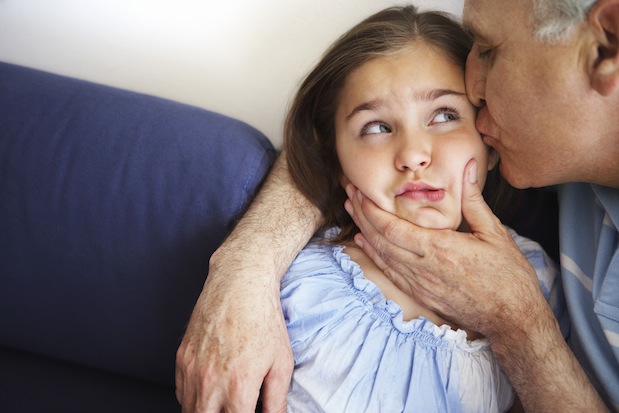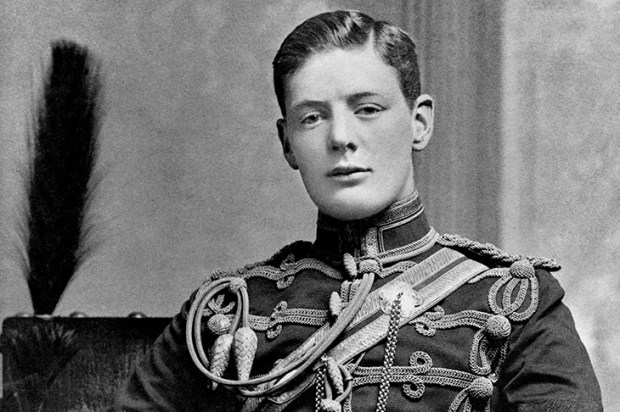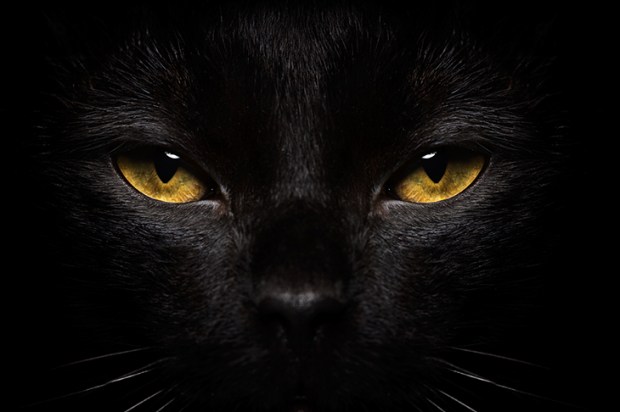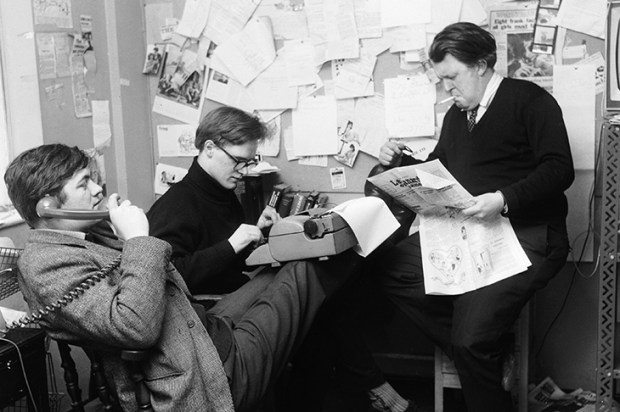My grandmother, Nanny Nancy, is 99 and going strong. But it can’t be denied that while she’s all there mentally, physically she’s not the lithe young thing she was in her 1920s adolescence. I mean no disrespect to my beloved grandmother, but if we’re honest, when Michael Bay is casting his next blockbuster and it’s a choice between her and Megan Fox for the female lead, well… .
It’s not just me who has noticed this: the kids have even more so. When they were younger, especially, and I asked them to kiss their great-grandmother they’d react — as so many children do when confronting their older relatives’ decrepitude — as if I’d invited them to snog a bird-eating spider.
‘Kids, try to make it less obvious, would you?’ I’d say. ‘You might get more money next time.’ And sure enough, little by little, over the years, my kids have learned the art of what some might call hypocrisy but which I would call basic good manners. They have learned that sometimes to make loved ones happy it is necessary to put your own feelings to one side.
But apparently I’ve been sending the wrong message. You may have read about it in the papers the other day: someone called Lucy Emmerson from something called the Sex Education Forum intimated that forcing kids to kiss granny is akin to setting them up as future rapists and rape victims.
‘I believe learning about consent starts from age zero,’ Emmerson said. ‘Intervening may be awkward… but it is necessary if we are truly to teach children that their bodies are their own and that their instincts should be followed. Suggesting alternatives to the child such as a high-five, a hug, blowing a kiss or a wave puts the child in control.’
Nice troll work, that Lucy Emmerson! If I were trying to draw media attention to my toothless, worthless, two-bit campaigning organisation, that’s just the kind of outrageous garbage I would come up with too. Newspapers love this stuff because it generates traffic (the Mail’s internet version had 7,300 shares); fringe groups like the Sex Education Forum love it because otherwise no one would ever hear of them.
Where, though, do you draw the line? Is there not a danger that the more frivolous and unwonted prominence our media gives to these demented cultural Marxist pressure groups, the more likely it is that their ravings end up one day being taken seriously?
I’m thinking, for example, of the recent campaign by a ragbag of authoritarian lobbyists who imagine that it’s the government’s job to dictate how much a business can charge for its produce.
Among these groups were the British Medical Journal, the UK Faculty of Public Health and the Royal College of Physicians. All were deeply aggrieved by the government’s decision last year not to impose a minimum price on alcohol. And the reason for this, they claimed, was that the coalition had been nobbled by the drinks industry.
Now I can see why, were you, say, an editor at the Guardian or the BBC, you might imagine that this constituted a worthwhile story. It is, after all, an article of faith among such types that free-market capitalism foments social injustice and therefore deserves to be regulated out of existence by the benign hand of big government.
But it wasn’t just the Guardian and the BBC who ran with this story. It got quite a bit of play right across our media, conservative and left-liberal alike. Which would have been forgivable, I suppose, if there had been any merit to the campaigners’ claims. Was there though? Let’s briefly examine the evidence.
In 2012, the University of Sheffield Alcohol Research Group made an announcement — widely promulgated by the media, including on a BBC Panorama programme presented by Joan Bakewell — that the introduction of a 50p per unit minimum-price regime on alcohol would save the lives of 50,000 people in the over-65 group in the next decade.
This figure, on closer examination, turned out to be bunkum. Even the Alcohol Research Group was forced to admit this, blaming ‘human error’. Mistake or no, it was very much of a piece with the Research Group’s other work in this field. A subsequent investigation by Chris Snowdon and statistician John C. Duffy for the Adam Smith Institute found that the Research Group’s computer models were deeply flawed and the evidence in favour of minimum alcohol pricing was ‘to all intents and purposes nonexistent’.
Not that this stopped David Cameron chipping in his tuppenny ha’penny’s worth. A minimum price for alcohol, he declared in 2012 — quoting statistics he’d taken from the Sheffield group — would help ‘reduce drinking in those who drink the most’. If the price were 40p a unit, he said, it could mean ‘50,000 fewer crimes… and 900 fewer alcohol-related deaths a year by the end of the decade’.
Well, we can only assume that wiser heads in the coalition eventually prevailed because the minimum alcohol pricing plan was subsequently shelved. Now, if you were of a paranoid, leftist, conspiratorial frame of mind you could, I guess, blame this turnaround on the influence of the ‘130 meetings’ the drinks industry has conducted with the coalition. Or you could, as I would argue, see this as one of those rare occasions when our government actually bowed to evidence and commonsense in its policymaking.
Never a day goes by without ‘campaigners’ and ‘experts’ bringing out a new report which shows conclusively why we should all be forced by the government to give up booze/fags/fatty food/sugar/carbon dioxide/fun generally. Given the massive disruption these schemes would cause to our lives were they ever implemented, surely the very least our fearless, frank media — supposed bulwark of our freedoms — ought to do is subject this hysterical scaremongering to proper scrutiny.
Got something to add? Join the discussion and comment below.
Get 10 issues for just $10
Subscribe to The Spectator Australia today for the next 10 magazine issues, plus full online access, for just $10.
You might disagree with half of it, but you’ll enjoy reading all of it. Try your first month for free, then just $2 a week for the remainder of your first year.















Comments
Don't miss out
Join the conversation with other Spectator Australia readers. Subscribe to leave a comment.
SUBSCRIBEAlready a subscriber? Log in